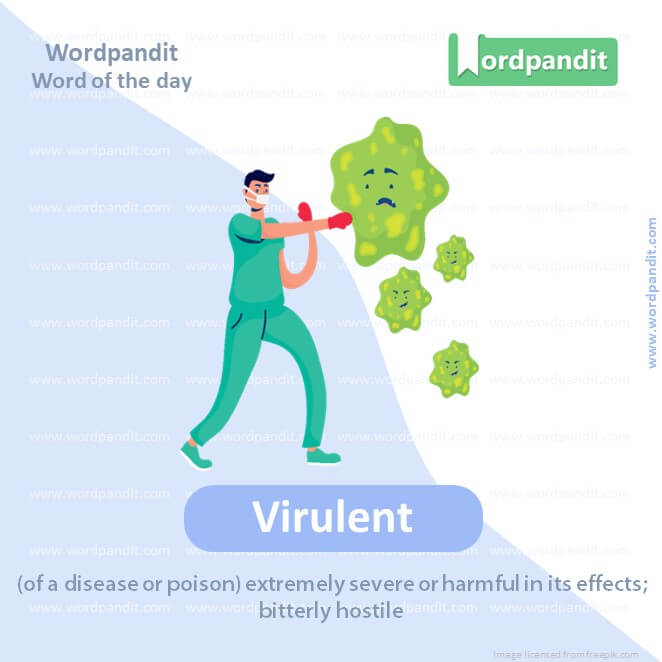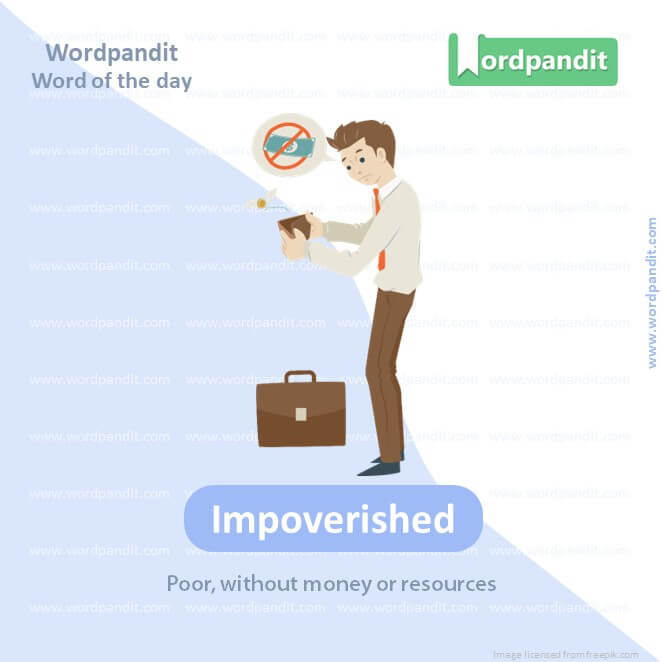Daily Vocabulary Words: List of Daily Used Words
Hi there. Welcome to this special section @ Wordpandit.
Our endeavour here is straightforward: highlighting important daily vocabulary words, you would encounter in The Hindu. This is your repository of commonly used words; essentially, we are posting a list of daily used words. Hence, this has significant practical application as it teaches you words that are commonly used in a leading publication such as The Hindu.
Visit the website daily to learn words from The Hindu.
WORD-1: CRADLE
CONTEXT: Eighty-two children have been rescued from a major trafficking ring which aimed to sell them to the highest bidder. Officials found the children in a dilapidated house, described by locals as a “cradle” of criminal activity.
SOURCE: The Hindu
EXPLANATORY PARAGRAPH: You know, a cradle is a small bed for a baby that has sides to keep the baby safe. Moms and dads use a cradle to put their little baby to sleep. It’s like the baby’s own little comfy place where they can dream.
MEANING: A small bed with sides for a baby (noun). To hold something gently and protectively (verb).
PRONUNCIATION: Kra-dle
SYNONYMS: Bassinet, Crib, Cot, Nest, Nurse, Rock, Hold
USAGE EXAMPLE:
1. The baby slept peacefully in her cradle.
2. The museum cradles some of the world’s most famous artifacts.
3. A beautifully carved cradle was gifted to the newborn.
4. He gently cradled the bird in his hands.

WORD-2: VIRULENT
CONTEXT: In response to the recent outbreak of a yet-unknown disease in rural regions, Medical experts have described the strain as ‘virulent’ and are calling for immediate action by the health ministry.
SOURCE: The Hindu
EXPLANATORY PARAGRAPH: Virulent is a word we use when something is really harmful or bad, like when you’re very very sick, or when someone is very mean and nasty.
MEANING: (of a disease or poison) extremely severe or harmful in its effects; bitterly hostile (adjective).
PRONUNCIATION: Ve-roo-lent
SYNONYMS: Toxic, Venomous, Malicious, Vicious, Nasty, Malignant, Hostile
USAGE EXAMPLE:
1. The virulent strain of the disease claimed many lives.
2. He responded to the criticism with a virulent attack.
3. The virulent bacteria caused him to be hospitalized.
4. Her virulent remarks hurt his feelings.

WORD-3: AUTOMATION
CONTEXT: Industry professionals argued that automation would lead to more productivity and efficiency, but many are now concerned about the impact on employment rates.
SOURCE: The Hindu
EXPLANATORY PARAGRAPH: Automation is like when a robot or a machine can do a job all by itself without needing a person to help it. Like your toy that walks and talks by itself when you push a button, that’s automation.
MEANING: The use or introduction of automatic equipment or devices, especially in manufacturing or other processes (noun).
PRONUNCIATION: Aw-toh-may-shun
SYNONYMS: Mechanization, Robotization, Computerization, Industrialization, Streamlining
USAGE EXAMPLE:
1. Automation has increased the efficiency of the production process.
2. Many fear job loss due to automation.
3. The company is looking into automation of their packaging process.
4. Automation in the IT industry has revolutionized work practices.
WORD-4: REBOOT
CONTEXT: The government has decided to reboot the cumbersome public education system and introduce new teaching methodologies to improve the overall quality.
SOURCE: The Hindu
EXPLANATORY PARAGRAPH: You know when your computer stops working well and you have to turn it off and start it again so it works better? Well, that’s called a reboot.
MEANING: To restart (a computer system or a program) (verb). A restart of a system (noun).
PRONUNCIATION: Ree-boot
SYNONYMS: Restart, Try Again, Reset, Kickstart, Fresh Start
USAGE EXAMPLE:
1. The system needed a reboot after the power outage.
2. Sometimes a simple computer reboot can solve the issue.
3. The movie is a reboot of a classic 80s horror film.
4. Their relationship needs a bit of a reboot.

WORD-5: IMPOVERISHED
CONTEXT: Despite boasting one of the fastest-growing economies, the country still struggles with pockets of severe poverty. Improved growth isn’t reaching the impoverished sections of our society.
SOURCE: The Hindu
EXPLANATORY PARAGRAPH: When someone is impoverished, they don’t have enough money to buy the things they need, like food or clothes or a place to live. It’s like when your piggy bank is empty and you can’t buy candy.
MEANING: Poor, without money or resources (adjective)
PRONUNCIATION: Im-pov-ver-ished
SYNONYMS: Poor, Needy, Destitute, Indigent, Penniless, Insufficient, Lacking
USAGE EXAMPLE:
1. He came from an impoverished background but became successful.
2. The drought has further impoverished the rural regions.
3. Her impoverished circumstances didn’t dampen her spirit.
4. The land was impoverished due to overuse.

WORD-6: TECHNOCRATS
CONTEXT: Faced with a series of crises, the government is increasingly relying on technocrats—the experts who use their specialized knowledge to solve problems that are beyond the grasp of traditional bureaucrats.
SOURCE: The Hindu
EXPLANATORY PARAGRAPH: Technocrats are like the big bosses in a company who know a lot about science, engineering or technology. They make important decisions about how we use technology in different places like hospitals or schools.
MEANING: Experts in science or technology who have a significant influence in policy or governance (noun).
PRONUNCIATION: Tek-no-crats
SYNONYMS: Expert, Specialist, Professional, Manager, Engineer, Scientist, Authority
USAGE EXAMPLE:
1. The company is run by a team of technocrats.
2. The technocrats are leading the new tech revolution.
3. The government hired technocrats to fix the problem.
4. The new technocrats have transformed the industry.

WORD-7: ARTICULATE
CONTEXT: The Communications Minister was applauded for her ability to articulate complex issues in a manner that was accessible and understandable to the general public.
SOURCE: The Hindu
EXPLANATORY PARAGRAPH: When you articulate, it’s like speaking clearly so that people understand what you’re saying. It’s just like when your teacher talks clearly so you can understand your lessons.
MEANING: Having or showing the ability to speak fluently and coherently (verb).
PRONUNCIATION: Ar-ti-cu-late
SYNONYMS: Express, Communicate, Convey, Formulate, Verbalize, Phrase, Clarify
USAGE EXAMPLE:
1. He was able to articulate his thoughts clearly.
2. Her articulate manner made her a successful speaker.
3. The child articulated his feelings about the situation.
4. She struggled to articulate her thoughts.
WORD-8: DOUSE
CONTEXT: Firefighters have managed to douse the massive fire that engulfed a major portion of the city central market.
SOURCE: The Hindu
EXPLANATORY PARAGRAPH: To douse means to get something really wet, or to stop a fire by putting water on it. It’s like when you pour a bucket of water on your toy fire truck to pretend to put out a fire.
MEANING: Pour a liquid over; drench (verb). To extinguish a fire with water (verb).
PRONUNCIATION: Dowse
SYNONYMS: Soak, Drench, Saturate, Immerse, Submerge, Quench, Extinguish
USAGE EXAMPLE:
1. He doused the campfire before leaving.
2. She doused herself in perfume.
3. The firefighters worked to douse the flames.
4. The heavy rain doused the entire garden.
WORD-9: INFUSED
CONTEXT: The new energy policy infused optimism among renewable energy proponents as it aims to reduce dependence on fossil fuels substantially.
SOURCE: The Hindu
EXPLANATORY PARAGRAPH: When something is infused, it’s filled with a certain feeling or quality. It’s like how a tea bag infuses warm water with its flavor when you make a cup of tea.
MEANING: To instill a quality in someone or something (verb). To soak (tea, herbs, etc.) in liquid to extract its flavor or medicinal properties (verb).
PRONUNCIATION: In-fyooz-d
SYNONYMS: Imbue, Fill, Permeate, Saturate, Inject, Instill, Ingrain
USAGE EXAMPLE:
1. The tea was infused with herbs and honey.
2. The music was infused with emotion.
3. The teacher infused the students with enthusiasm.
4. The new fragrance was infused with essential oils.
WORD-10: COPIOUS
CONTEXT: Local farmers, enthused by the copious rainfall this season, are expecting a bumper harvest.
SOURCE: The Hindu
EXPLANATORY PARAGRAPH: When you have a lot of something, like a big pile of toys or a mountain of candies, that’s called having copious amounts of something.
MEANING: Abundant in supply or quantity; plentiful (adjective).
PRONUNCIATION: Ko-pee-us
SYNONYMS: Plentiful, Abundant, Ample, Profuse, Extensive, Generous, Bountiful
USAGE EXAMPLE:
1. He always takes copious notes in class.
2. She has a copious collection of books.
3. We have a copious amount of food for the party.
4. He expressed his ideas with copious enthusiasm.
vocabulary journey
In the realm of language learning, one unparalleled method has been consistently proven to provide tremendous value – engaging with vocabulary journal words. This practice is a brilliant tool that provides a platform for the gradual introduction of new words, phrases, and their nuances.
But how exactly should we approach learning vocabulary journal words?
Originally, vocabulary journal words are a collection of new words you encounter that are challenging and unfamiliar. On stumbling upon such words, take the first step by writing them down in your journal. But simply recording them isn’t enough. The real strength of vocabulary journal words lies in understanding and using them in context. Draft sentences using these words, as this practical usage not only enhances retention but also familiarizes you with their applicability.
Expanding your vision beyond memorization, indulge in understanding the background of these vocabulary journal words. Dive into the etymology of the words, learn their origins, and uncover the different meanings they’ve held over time. This nugget of information often aids in deeper understanding and long-term retention of words.
Your engagement with vocabulary journal words should not be reserved for solitary learning. Discuss these words in conversation with friends, family, or language mentors. This encourages active usage and, silently but surely, integrates them into your everyday language.
Another enchanting side to vocabulary journal words is the potential for creativity. Create small stories or visuals connected to the words, leading your brain to create multiple neural connections to the meaning of the word – a powerful strategy for enhancing retention.
In essence, vocabulary journal words offer a multifaceted, immersive learning process that goes beyond just enhancing your word-list. They open doors to the dynamic world of language and its contexts, training your mind to appreciate, understand, and effectively communicate with an enriched vocabulary. Consider vocabulary journal words not as a task but as your secret allies on your beautiful journey through language learning.











